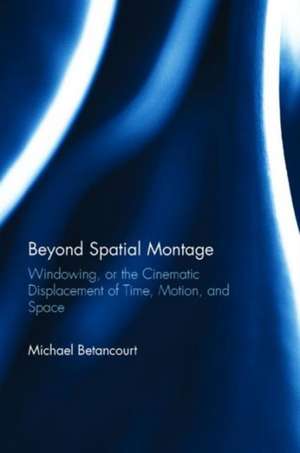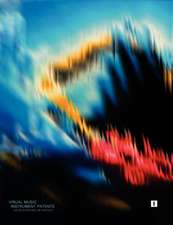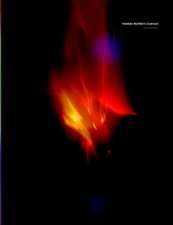Beyond Spatial Montage: Windowing, or the Cinematic Displacement of Time, Motion, and Space
Autor Michael Betancourten Limba Engleză Hardback – 8 mar 2016
Preț: 821.96 lei
Preț vechi: 1179.35 lei
-30% Nou
Puncte Express: 1233
Preț estimativ în valută:
157.27€ • 164.23$ • 129.88£
157.27€ • 164.23$ • 129.88£
Carte tipărită la comandă
Livrare economică 15-29 aprilie
Preluare comenzi: 021 569.72.76
Specificații
ISBN-13: 9781138938663
ISBN-10: 1138938661
Pagini: 182
Dimensiuni: 152 x 229 x 20 mm
Greutate: 0.57 kg
Ediția:1
Editura: Taylor & Francis
Colecția Routledge
Locul publicării:Oxford, United Kingdom
ISBN-10: 1138938661
Pagini: 182
Dimensiuni: 152 x 229 x 20 mm
Greutate: 0.57 kg
Ediția:1
Editura: Taylor & Francis
Colecția Routledge
Locul publicării:Oxford, United Kingdom
Cuprins
1. Introduction. 1.1 Definitions and Scope. 1.2 The "Image Animation Problem". 1.3 The Taxonomic Approach. 1.4 Affect. 1.5 Motion Graphics. 1.6 Scope of Analysis. 2. Realism. 2.1 The Long Take. 2.2 Animation. 2.3 Abstraction. 2.4 Montage and Editing. 2.5 Realism versus Reality. 2.6 Simultaneous Action. 3. Windowing. 3.1 Conceptual Framework. 3.2 Multiple Image Compositions. 3.3 Technological Production. 3.4 Limited Scope in Manovich’s Theorization. 3.5 Windowing. 4. Taxonomy. 4.1 Time—Motion—Space Displacement. 4.2 Motion—Space Displacement (Mirroring). 4.3 Time—Space Displacement. 4.4 Time—Motion Displacement (Step-Printing). 4.5 Interdependence of Types. 5. Conclusions. 5.1 Commercial and Non-Commercial Forms. 5.2 Theory and Praxis. 6. Diagrams and Figures. Appendix. A.1 Semiotics of Morphology and Structure. A.2 Application. A.3 Aesthetics are History.
Descriere
Beyond Spatial Montage: Windowing, or the Cinematic Displacement of Time, Motion, and Space offers an extended discussion of the morphology and structure of compositing, graphic juxtapositions, and montage employed in motion pictures. Drawing from the history of avant-garde and commercial cinema, as well as studio-based research, here media artist and theorist Michael Betancourt critiques cinematic realism and spatial montage in motion pictures. This new taxonomic framework for conceptualizing linkages between media art and narrative cinema opens new areas of experimentation for today’s film editors, motion designers, and other media artists.







